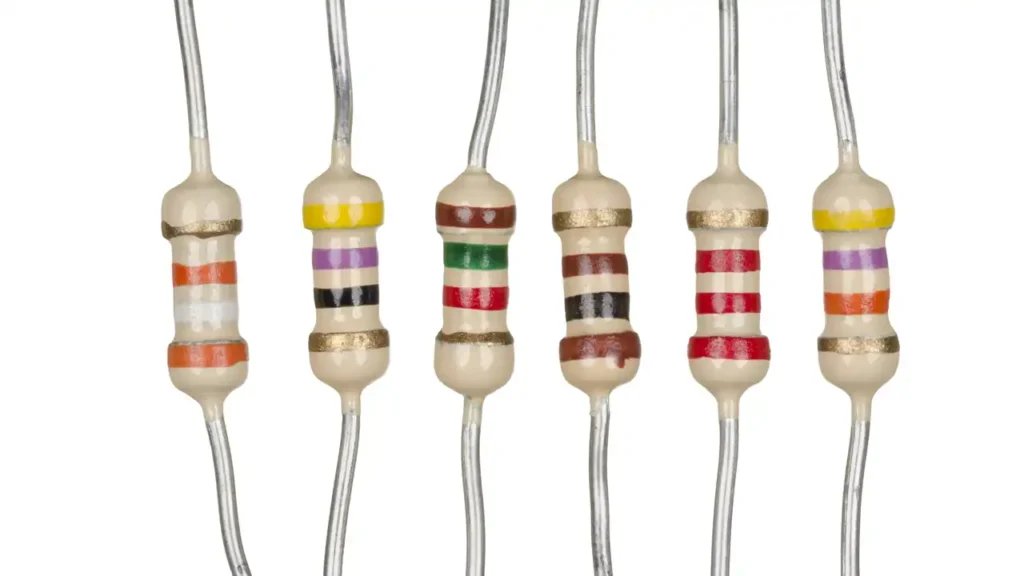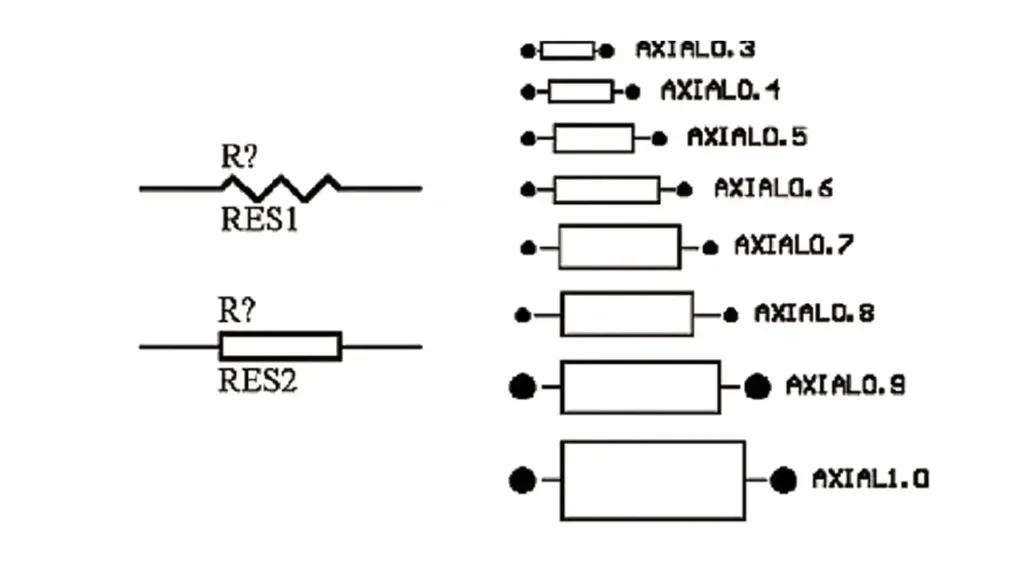Through-hole resistors are a fundamental component in electronic circuits, used to introduce resistance and control the flow of current. With their diverse range of types, they cater to various applications, from simple circuits to complex electronic systems.
In this blog post, we will delve into the different types of through-hole resistors, exploring their unique characteristics, applications, and advantages. By understanding the variety available, you can make informed choices for your electronic projects.
What Is Through Hole Resistor?
A through-hole resistor is a type of electronic component used to introduce resistance into an electrical circuit. It is characterized by its cylindrical shape and lead wires that are inserted through holes in a printed circuit board (PCB).
This mounting method, known as through-hole technology (THT), has been a standard practice in electronics for decades.
Through-Hole Resistor Types

Carbon Resistors:
- Construction: Carbon resistors are made by mixing carbon granules with a binder and compressing them into a cylindrical shape. The resistance value is determined by the amount of carbon and the compression level.
- Advantages: Low cost, wide range of resistance values, and good tolerance.
- Disadvantages: Relatively high temperature coefficient, noise, and limited stability.
- Applications: General-purpose applications, such as voltage dividers, current limiting, and simple circuits.
Metal Film Resistors:
- Construction: Metal film resistors are made by depositing a thin metal film onto a ceramic substrate. The resistance value is determined by the thickness and type of metal film.
- Advantages: High precision, low temperature coefficient, excellent stability, and low noise.
- Disadvantages: Higher cost compared to carbon resistors.
- Applications: Precision circuits, audio equipment, instrumentation, and applications requiring high accuracy and stability.
Wire-Wound Resistors:
- Construction: Wire-wound resistors are made by winding a resistance wire around a ceramic core. The resistance value is determined by the length and diameter of the wire.
- Advantages: High power dissipation, low resistance values, and good temperature stability.
- Disadvantages: Larger size, higher inductance, and potential for noise.
- Applications: High-power applications, such as motor control, power supplies, and audio amplifiers.
Precision Resistors:
- Construction: Precision resistors are manufactured using specialized techniques to achieve extremely high accuracy and stability. They often use materials like metal film or wire-wound, but with tighter tolerances and stricter quality control.
- Advantages: Very low tolerance, excellent stability, and low temperature coefficient.
- Disadvantages: Higher cost and limited availability compared to standard resistors.
- Applications: Precision measurement instruments, laboratory equipment, and high-end audio equipment.
Variable Resistors (Potentiometers):
- Construction: Variable resistors, or potentiometers, have a sliding contact that can be adjusted to change the resistance value. They are typically made of carbon or metal film.
- Advantages: Allow for manual adjustment of resistance, making them useful for user-controlled settings.
- Disadvantages: Can be prone to wear and tear over time.
- Applications: Volume controls, brightness adjustments, and other user-controlled settings.
By understanding the unique characteristics and applications of these different through-hole resistor types, you can make informed choices for your electronic projects and ensure optimal performance.
What Are Through Hole Resistors Used for?
Through-hole resistors are used in a wide range of electronic applications to introduce resistance into circuits. Here are some common uses:
- Voltage dividers: To divide a voltage into smaller, proportional voltages.
- Current limiting: To restrict the flow of current in a circuit.
- Pulse shaping: To modify the shape of electrical pulses.
- Filters: To remove unwanted frequencies from a signal.
- Bias networks: To set the operating point of transistors and other active components.
- General-purpose applications: In various electronic circuits where resistance is needed.
The specific application of a through-hole resistor depends on its resistance value, power rating, and other characteristics.
Through-Hole Resistor Sizes

Through-hole resistors come in a variety of sizes, typically determined by their power rating and physical dimensions. Larger resistors can handle higher power dissipation, while smaller resistors are more suitable for low-power applications and space-constrained designs.
Here are some common size categories for through-hole resistors:
- Tiny: These are the smallest resistors, often used in high-density circuits.
- Miniature: Slightly larger than tiny resistors, still suitable for space-constrained designs.
- Standard: The most common size, offering a good balance of power handling and size.
- Power: Designed for higher power dissipation, typically larger in size.
The specific dimensions of a through-hole resistor can vary depending on the manufacturer and type. However, typical dimensions include:
- Diameter: 0.125 inches (3.18 mm) to 0.5 inches (12.7 mm)
- Length: 0.25 inches (6.35 mm) to 1 inch (25.4 mm)
It’s important to select the appropriate resistor size based on your specific application requirements. Factors to consider include the required power rating, available board space, and the mounting method (axial or radial lead).
Would you like more information on specific resistor sizes or their applications?
Conclusion
Through-hole resistors are essential components in electronic circuits, offering a wide range of resistance values, power ratings, and package types. By understanding the different types and their characteristics, you can select the most suitable resistor for your specific applications.
Whether you’re working on a hobby project, building a prototype, or designing complex electronic systems, through-hole resistors provide a reliable and versatile solution.
Need high-quality through-hole resistors for your projects? Look no further! [Your Company Name] offers a vast selection of top-tier resistors, including:
- Carbon resistors
- Metal film resistors
- Wire-wound resistors
- Precision resistors
- And more!
Our resistors are sourced from trusted manufacturers, ensuring reliability and performance.
Contact us today to discuss your requirements and get started on your next project.